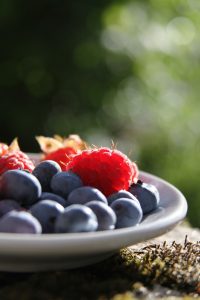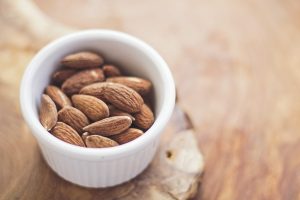5 Ways To Free Yourself From Food Addiction

Food Addiction
Addiction to certain substances has long been recognized but now food addiction, including sugar addiction, is being seen as a serious problem too. It is thought that the reward centers of the brain are activated when we eat something we perceive as a reward or a comfort in the same way an addictive drug activates that part of the brain.
The kinds of foods we are usually addicted to are high fat and high sugar foods which are bad news for weight and health.

Signs that you are addicted to food:
- Being overweight
- Eating in secret or covering up what you eat
- Seeing foods as good or bad
- Feeling guilt or shame over your eating habits
- Focusing on food all the time
- Feeling as though you can’t control your eating
If you recognize two or more of these behaviors in yourself you are likely addicted to food!
So how can we treat this addiction?
- Traditional recovery programs for alcohol and substance abuse recovery
These advocate completely giving up the addictive substance. Everything in moderation does not work for this kind of problem! Truthfully figure out which foods are ‘trigger’ foods for you, then you need to remove them completely. This means not buying them, not even having them in the house – not even for anyone else, and also avoiding places you would traditionally consume the foods (like fast food restaurants).
- Learn how to eat ‘mindfully’.
This means focusing on what you are eating and how it makes you feel. That might mean not eating in front of the TV, at a desk while working, or while wandering around town. Take time to sit down and enjoy your food.
- Replace your trigger foods with alternatives that you enjoy.
 Too often we are too strict. If you try to replace your chocolate bar with a bowl of lettuce you will likely fail. But if you love strawberries or dried apricots or exotic fruits like mango these will still satisfy you. Make small changes first. Take time to learn about healthy eating – not dieting but consuming foods for optimal health. You could follow bloggers or subscribe to a magazine. The more you know, the easier it is to make those changes.
Too often we are too strict. If you try to replace your chocolate bar with a bowl of lettuce you will likely fail. But if you love strawberries or dried apricots or exotic fruits like mango these will still satisfy you. Make small changes first. Take time to learn about healthy eating – not dieting but consuming foods for optimal health. You could follow bloggers or subscribe to a magazine. The more you know, the easier it is to make those changes.
- Learn coping strategies.

This could include learning to go for a walk when you feel stressed or anxious, or phoning a friend to talk about your bad day instead of reaching for the chocolate. Reading a book, going to an exercise class, taking up meditation – find what works for you.
- Seek professional help.
It may turn out that your addiction is so deeply ingrained that you need more help. Doctors can refer you to certain therapies like cognitive behavioral therapy, or you could get a book out of the library. Not everyone can afford private therapy but it is a possibility for some. And some people try hypnosis. You can find a hypnotist near you or try some of the programs you can find on line.